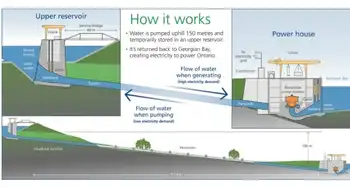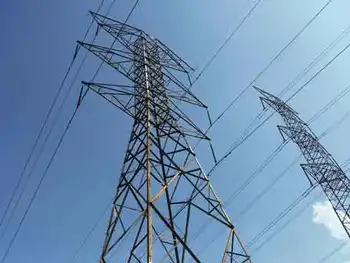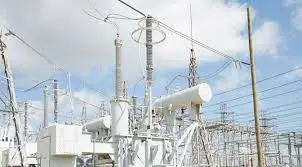Lockhead Martin to advance OTEC
MANASSAS, VIRGINIA - The U.S. Department of Energy recently selected Lockheed Martin to receive two grants totaling $1 million to advance the technology commercialization of Ocean Thermal Energy Conversion (OTEC).
The grants support the company's effort to produce an economically viable, utility-scale renewable energy source leveraging the temperature difference of the ocean's warm surface water and colder water below.
Under the first grant, Lockheed Martin will develop a tool to estimate the amount of energy that can be extracted from the ocean's thermal layers. The geographic information system-based dataset and software tool will be used to identify regions of the world viable for OTEC and seawater-based air conditioning (SWAC). The resulting resource mapping will provide critical information to policy makers, the energy industry and the public about regional OTEC and SWAC feasibility.
SWAC, which uses cold seawater located near coastlines to supply air-conditioner coolant, has the potential to significantly reduce electric utility loads during high summer demand periods and is a proven technology currently in use in Hawaii, Bora Bora, Stockholm and Ottawa.
Under the second grant, Lockheed Martin will develop estimates of performance and life-cycle costs associated with utility-scale OTEC systems to demonstrate the economic feasibility of such projects. The resulting data will provide justification for pursuing commercialization of OTEC and generate investment interest in this stable, renewable energy source.
"The Department of Energy awards provide Lockheed Martin the opportunity to further demonstrate the capability of OTEC," said Jeffrey Napoliello, vice president of Lockheed Martin's New Ventures line of business. "As a self-sustaining energy source, with no supplemental power required, OTEC will help our nation and our military achieve their renewable energy goals."
The Department of Energy grants follow an $8.12 million Department of Defense award to Lockheed Martin in September 2009. That contract from the U.S. Naval Facilities Engineering Command calls for development of critical OTEC system components and further matures its design for an OTEC pilot plant, an incremental step in developing large-scale utility plants. In 2008, Lockheed Martin received a $1.2 million Department of Energy contract to demonstrate how special cold water piping could be fabricated to carry the large volumes of seawater required to produce commercial power.
Lockheed Martin's experience with OTEC technology dates back to the 1970s when the company built "Mini-OTEC." This early prototype remains the world's only floating OTEC system to generate power in excess of what is required for self-sustainment. Since that time, Lockheed Martin has continued to mature and validate the critical technologies necessary for an OTEC system that could generate a utility-scale power supply.
In addition to its work in OTEC, Lockheed Martin is working with its customers to address the nation's energy and climate challenges in the areas of next-generation alternative energy, energy efficiency, and storage and climate monitoring.
Related News

CT leads New England charge to overhaul electricity market structure
HARTFORD - Weeks after initiating a broad overhaul of utility regulation within its borders, Connecticut has recruited four New England states to rework the regional grid that is overseen by ISO New England, the independent system operator charged with ensuring a reliable supply of electricity from power plants.
In a written statement Thursday morning, Gov. Ned Lamont said the current structure “has actively hindered” states’ efforts to phase out polluting power plants in favor of renewable sources like wind turbines and solar panels, while increasing costs “to fix market design failures” in his words. Lamont’s energy policy chief Katie Dykes has…




